COST-Africa participant clinical officer Calistus Chumia was interviewed by the WHO about unmet need for surgery in Malawi.
|
The supervision model essentially entails a surgical oversight team, comprising of 5 specialist surgeons, comprising a surgical specialist from each of the provinces where COST-Africa Medical Licentiates are based, along with 1 surgeon from Lusaka. The team has a dual role, through periodic supportive supervision visits in the field and technical advice at a distance (by telephone, email), as and when required by the ML supervisee or at the initiative of the specialist surgeon himself.
COST-Africa brought together the team of 6 supervising surgeons for a 2 day meeting held at Cresta Golfview hotel, Lusaka on the 6th and 7th May 2015. The objectives of the surgeons’ oversight team meeting and workshop were discussed and met: · to review and analyze data from intervention and control hospitals taking part in the COST-Africa study, · to discuss obstacles to surgery at the district level, · to discuss any other obstacles, attitudes and concerns of the Medical Licentiates · to identify opportunities for strengthening and monitoring Level 1 hospital surgical supervision and referral networks · to discuss lesson learnt from the project and to chart a way forward. Medical Licentiate workshop
COST-Africa researchers from RSCI and SSZ ran a successful three day workshop with the Medical Licentiates currently involved in COST-Africa. The workshop took place on Monday 27th to Wednesday 29th April 2015 at Mika Lodge, Lusaka. The meeting was opened by Dr Yotham Phiri (Vice Chair Person, Chainama College of Health Sciences). Dr John Kachimba (the COST-Africa Zambia PI) and Mr Duff Kopakopa (President Zambia Medical Licentiate Practitioners Association) also addressed the Medical Licentiates. The purpose of the meeting was to bring together the COST-Africa Medial Licentiates with the research team to discuss the data collected by the Medical Licentiates thus far. During the 3 day training workshop, the medical licentiates learnt more about the data they have collected and discussed the trends and outcomes as well as strengthening future data collection. This capacity-building exercise was additional to what they learned during the COST-Africa supplementary training. Additional to this was an opportunity for the researchers to learn from the Medical Licentiates about their time on the COST-Africa project. Lessons learnt provided great insight for various themes that the researchers intend to use to help develop exploratory qualitative component of the COST-Africa study down the line. COST-Africa data collection and analysis workshop took place from the 3rd to 7th of November, 2014 in Mangochi, Malawi. BSc in surgery students trained under the COST-Africa project in Malawi were invited to take part in a five day workshop organised by the local researcher and located in Mangochi by the beautiful coast of Lake Malawi. All of the sessions were conducted by COST-Africa researchers: Gerald Mwapasa (COM Malawi), Dennis Cornelissen (RUNMC, Netherlands) and Jakub Gajewski (RCSI, Ireland) with support from Mr Jonathan Waluza (COM, Malawi). The main scope of the workshop was to present preliminary analysis of surgical data that were collected by the students. The researchers presented trends in surgery for hospitals where the students are completing on the job training under the supervision of their provincial specialist surgeons. Preliminary analysis was presented aiming to improve data quality and to allow the research team to gain insight into the nature of surgery of a district hospital setting in Malawi. Three sessions were dedicated to re-train the participants in using COST-Africa data collection tools. One session was focused on data coding, and one was dedicated to the training of on-line-based data storage and transmission of tools to the researchers. On the last day of the workshop focus-group discussions were held to explore challenges and benefits that the students experience as COST-Africa project participants. COST-Africa Mangochi data collection and analysis workshop participants.
The Clinical Officer Surgical Training in Africa project (COST-Africa) held a data collection training workshop in Lusaka, Zambia at the Crossroads Lodge from 24th June until 2nd July 2013. The workshop brought together medical licentiates from the 2009 medical licentiate cohort for training in the use of the COST-Africa data collection tools. The data collection tool, designed with input from surgical specialists at RCSI including Professor Sean Tierney and Professor Michael Earley, the Surgical Society of Zambia and the College of Medicine in Malawi, will collect data on surgical outputs and surgical outcomes that will help evaluate the COST-Africa surgical training programme. The medical licentiates previously participated in the COST-Africa enhanced training in surgical skills, epidemiology professionalism and management in the summer of 2012. COST-Africa which is working closely with the Ministry of Community Development Mother and Child Health (MCDMCH) and Chainama College of Health Sciences, aims to demonstrate that lifesaving emergency and basic major surgery is a cost effective intervention that can be delivered by clinical officers. Clinical officers are non-physician clinicians with 3years basic science training who deliver most of the services in Africa that doctors would deliver if they were available at district hospital level thereby serving the essential needs of the rural poor. Medical licentiates in Zambia are clinical officers who have undergone additional training. This five year collaboration (2011-15) is funded under a European Union (EU) 7th Framework Programme for Research, Technological Development and demonstration under grant agreement [266417]. The project coordinator Professor Ruairí Brugha, Head of Epidemiology and Public Health Medicine at RCSI, Dr Tracey McCauley from RCSI and Dr Leon Bijlmakers from the University of Nijmegen Netherlands (RUNMC) joined their Zambian partners in Lusaka, Dr John Kachimba and Mr Edward Chibwili (SSZ) in what resulted in an eventful workshop. The Permanent Secretary, Professor Ellywn Chomba, from the Ministry of Community Development Mother and Child Health officially launched the workshop and showed great support for and recognition of the COST-Africa project. The Permanent Sectary commented on the importance of the project in training these medical licentiates in enhanced surgical skills as this cadre are the backbone to health care in the rural areas of Zambia. Also present on this day were Dr Tambatamba (Deputy Director – Epidemiology and Disease Control) and Mrs Chisense (Chief Human Resources Management Officer) who both have been in close contact with the SSZ providing help to and support for COST-Africa in Zambia. Photo 1 below shows the Permanent Secretary from the Ministry of Community Development Mother and Child Health and colleagues, specialist surgeons from the Surgical Society of Zambia, the medical licentiates in training and the COST-Africa team. Photo 2 below shows two medical licentiates extracting data form theatre registers during a district hospital visit to pilot the COST-Africa data collection tools. Photo 1: COST-Africa data collection training workshop launch June 2013 in Zambia. Among the participants are: Front row (left to right): Mrs Chisense ((Chief Human Resources Management Officer, MCDMCH); Dr. Tambatamba (Deputy Director - Mother and Child health); Professsor Ellywn Chomba (PS, MCDMCH); Dr. Charles Michelo (Head of Department of Health, University of Zambia);Professor Ruairi Brugha (COST-Africa coordinator, RCSI); Dr. John Kachimba (Principal investigator, SSZ); Captain Patrick Mwape (Medical licentiate). Other participants include the supervising surgeons to the medical licentiates; the medical licentiates form the 2009 cohort; Mr. Edward Chibwili and Dr. Robert Zulu (COST-Africa, SSZ); Dr. Leon Bijlmakers (COST-Africa, RUNMC) and Dr. Tracey McCauley (COST-Africa, RCSI). Photo 2: Medical licentiates from the 2009 Medical Licentiate cohort retrieving data form a theater register at Kafue District Hospital during piloting of the COST-Africa data collection tools.
COST-Africa annual consortium meeting held in Zambia |
|||||||
| 2009 COSECSA & ASEA newsletter endorsing the COST-Africa concept | |
| File Size: | 2369 kb |
| File Type: | |
Tuesday, 5th July 2011: COST-Africa is launched in Malawi
The launch and first international workshop of COST-Africa took place on Tuesday, 5th July 2011 at the Queen Elizabeth Central Hospital, Blantyre, Malawi. This five year collaboration (2011-2015), which will evaluate surgical training of Clinical Officers in Africa, is funded by the European Union under its FP7 and is led by Professor Ruairí Brugha, Head of Epidemiology and Public Health Medicine at RCSI. The four-country collaboration includes two African and two European institutions: College of Medicine Malawi (CoM), Surgical Society of Zambia (SSZ), University of Nijimegen Netherlands and RCSI.
African countries have surgeons trained to top international standards, but far too few to tackle the burden of disease that is amenable to surgery, especially in rural areas. Cost Africa will train clinical officers, who are the backbone of clinical care in rural Africa, to undertake life-saving emergency and elective major surgery at district hospitals in Malawi and Zambia. The rationale is that, unlike doctors and nurses, clinical officers’ qualifications and training have no counter-part in Europe or the US, making emigration from Africa difficult for them.
The investigators will use a cluster randomised controlled trial study design to provide proof-of-concept that surgery can be delivered cost-effectively and safely in district hospitals in Africa. Roll out of lessons learned to other African countries will be through the College of Surgeons of East, Central and Southern Africa (COSECSA) whose members span 9 African countries.
African countries have surgeons trained to top international standards, but far too few to tackle the burden of disease that is amenable to surgery, especially in rural areas. Cost Africa will train clinical officers, who are the backbone of clinical care in rural Africa, to undertake life-saving emergency and elective major surgery at district hospitals in Malawi and Zambia. The rationale is that, unlike doctors and nurses, clinical officers’ qualifications and training have no counter-part in Europe or the US, making emigration from Africa difficult for them.
The investigators will use a cluster randomised controlled trial study design to provide proof-of-concept that surgery can be delivered cost-effectively and safely in district hospitals in Africa. Roll out of lessons learned to other African countries will be through the College of Surgeons of East, Central and Southern Africa (COSECSA) whose members span 9 African countries.
Direct benefits to Africa
COST-Africa will bring direct life-saving and other health benefits to the people of Malawi and Zambia, especially rural dwellers who lack easy access to urban centres and whose only hope of life-saving emergency surgery is if it can be delivered at the nearest district hospital. The outcome will be a fully tested model that will:
COST-Africa will bring direct life-saving and other health benefits to the people of Malawi and Zambia, especially rural dwellers who lack easy access to urban centres and whose only hope of life-saving emergency surgery is if it can be delivered at the nearest district hospital. The outcome will be a fully tested model that will:
- a.) Make a major and sustainable impact on Africa’s Burden of Disease.
- b.) Provide African countries with surgically trained, sustainable and retainable health professionals.
- c.) Demonstrate the potential of a 3-fold role to help retain Africa’s scarce resource of highly trained surgeons – as specialists, trainers (of doctors and clinical officers); supervisors and quality assurers of surgical services.
News
The latest News about
COST-Africa...
Click here for Publications
Archives
March 2016
August 2015
July 2015
April 2014
September 2012
May 2012
July 2011

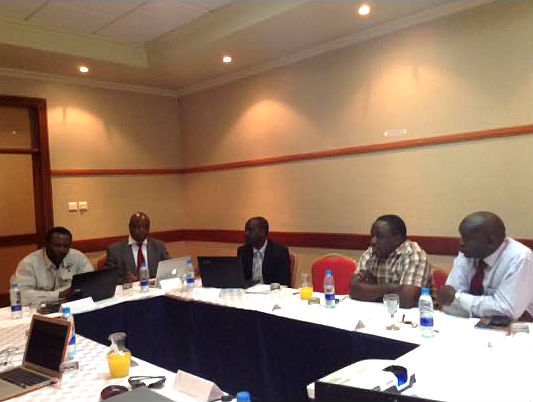
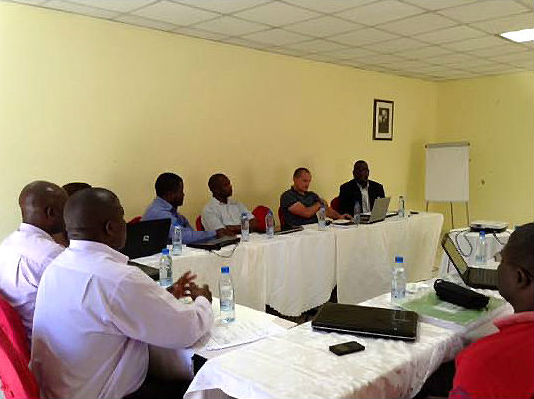
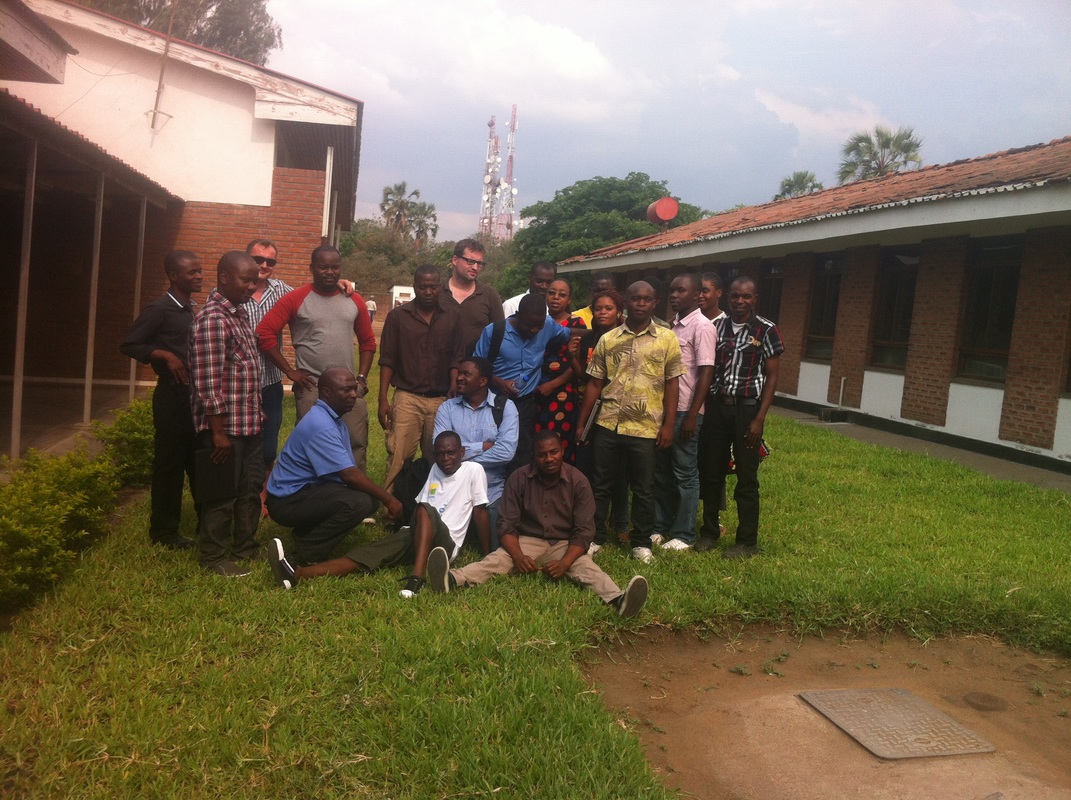
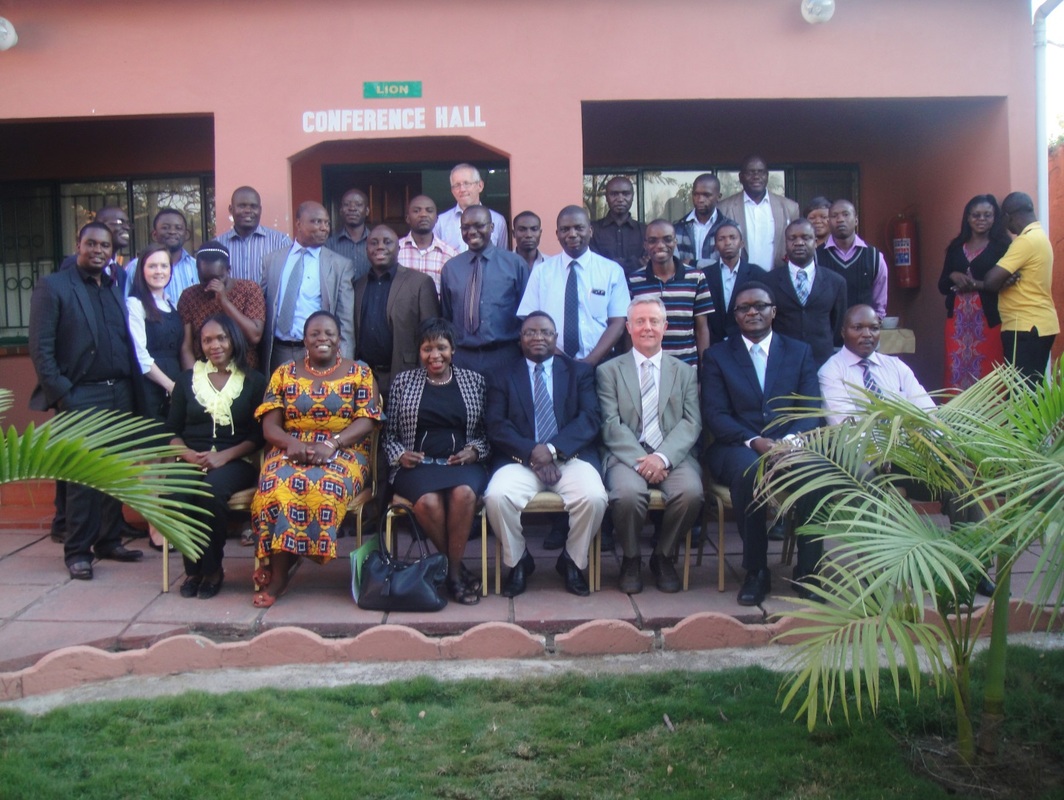
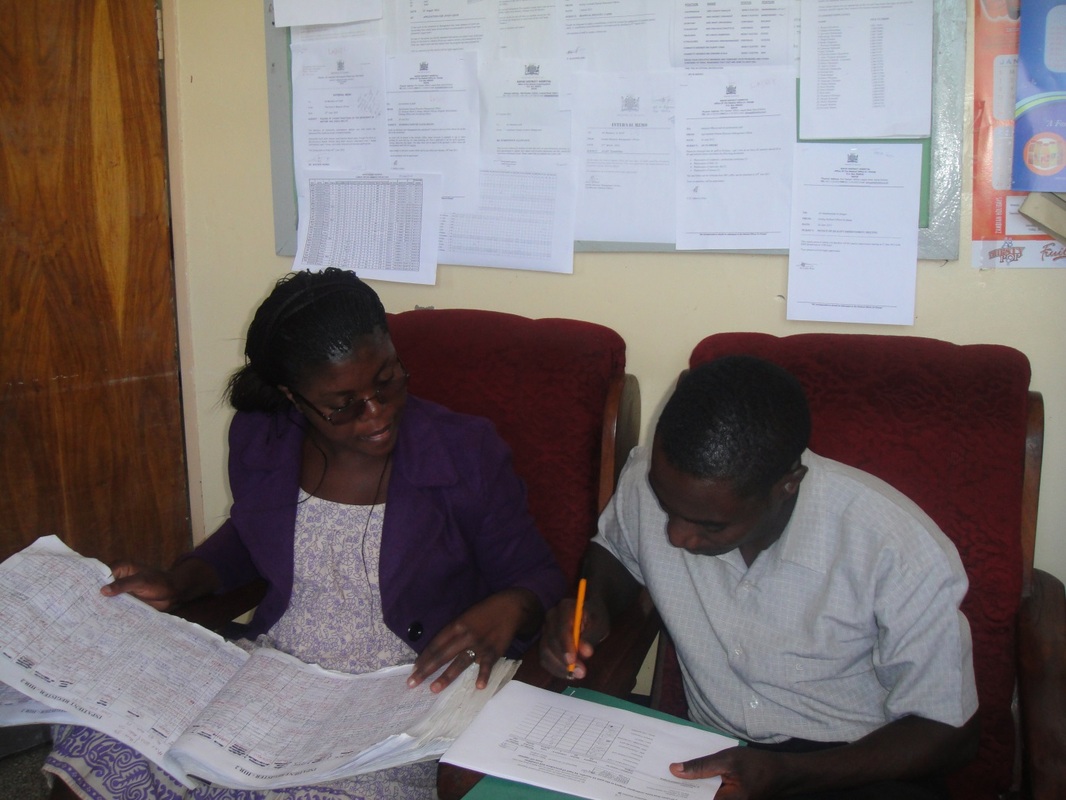

 RSS Feed
RSS Feed
